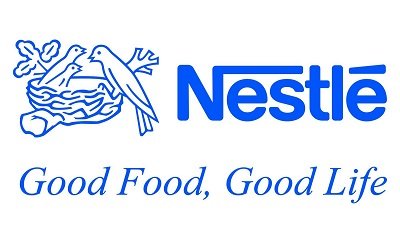Inside BENEO’s new pulse plant: pioneering sustainable protein from faba beans
The share prices of FMCG major Nestle India have been on decline in the last few days with continuous negative reports in the media over its one of its most loved food brands- Maggi 2-Minute Noodles. On May 28, the share price of Nestle India was at Rs 7196.80 and touched a low of Rs 6191.10 on June 3.
The net sales of the company has witnessed 11.71 % growth in the first quarter of this year at Rs 2,516.1 crore as against Rs 2,252.3 crore in the same period of previous year. For the year ended December 2014, Nestle India’s net profit stood at Rs 1,184.69 crore compared to Rs 1,117.13 crore in 2013. Net sales during the year stood at Rs 9,806.27 crore compared to Rs 9,061.90 crore in the previous fiscal, the company said.
Maggi 2-Minute Noodles, one of the largest brands that defines the instant noodles category in India, has been at the receiving end as the food safety authorities in Uttar Pradesh, Delhi have recently found high level of lead and Monosodium glutamate (MSG) beyond permissible limits.
Initiating an enquiry in mid last month, the Lucknow Food Safety and Drug Administration has written to the Food Safety and Standards Authority of India (FSSAI) in New Delhi to order sampling of the product from across the country to check its quality as prescribed on the label. Reacting to the developments, other states such as Karnataka, West Bengal, Haryana have collected samples of the products and will decide based on the outcome to the test reports.
Meanwhile Delhi has put a ban on the sale of Maggi for 15 days, states like Maharashtra, Goa and Kerala, who have tested the product at the government labs found that the product is safe for consumption as the test showed that MSG and lead levels were within accepted limits.
Nestle India noted that Maggi 2-Minute Noodles brings 10% Recommended Dietary Allowances (RDAs) of Protein and 20% RDA of Calcium in each serve (75g). With a reduction of over 27% salt per serve, less than 0.2% Trans Fats and no added MSG’s Maggi Noodles has focused on providing a healthier meal, without compromising on the great taste to the consumer.
Reacting to the concerns of the authorities, Nestle India posted a message saying,” We have strict food safety and quality controls in place for all raw materials used to make Maggi Noodles. These include comprehensive testing to ensure that our products comply with all applicable food safety laws and our own high standards of quality and safety before they reach our consumers. We are aware of reports that tests by the local authorities have detected MSG in a pack of Maggi Noodles. The authorities are continuing with their investigation and at the same time we have also submitted product samples to an independent accredited laboratory and will share the results with the authorities. We do not add MSG to Maggi Noodles and our label declarations are as per local regulation.”
Reiterating its stand on the issue, Nestle India said, “We have also submitted samples of Maggi Noodles from almost 600 product batches to an external laboratory for independent analysis and we tested samples from almost 1,000 batches at our accredited laboratory. These samples represent around 125 million [12.5 crore] packets. All the results of these internal and external tests show that lead levels are well within the limits specified by food regulations and that Maggi Noodles are safe to eat. We are sharing these results with the authorities. We regularly monitor all our raw material for lead, including testing by accredited laboratories which have consistently shown levels in Maggi Noodles to be within permissible limits. In addition, we remain committed to continuing to improve the quality of agricultural raw materials across the food chain working with farmers, suppliers, authorities and the food industry to ensure food safety. The quality and safety of our products are the top priorities for our company.”
The company further observed, “We use raw materials in Maggi Noodles which can contain naturally occurring Glutamate. It is important to note that many agricultural commodities like Onion, Peas, Tomatoes, etc. contain glutamate. This could be confused with commercially added MSG. Glutamate is safe to consume. We are also aware of the reports of elevated levels of lead in a pack of Maggi Noodles analyzed by the authorities. We regularly monitor for lead as part of our stringent quality control processes, including testing by accredited laboratories. These tests have consistently shown lead levels in Maggi Noodles to be within permissible limits. We have explained this to authorities while they investigate the matter further.”
According to Euromonitor International, Nestlé India Ltd is the leader in the Indian noodles market with a 63% market value share. Its Maggi brand was the most entrenched instant noodle brand in India in 2014. This is mainly because of its widespread distribution network and consumer loyalty towards it for being a pioneer in the noodle category in India.
Euromonitor International further reported that the instant noodle category is set to witness higher competitive intensity in 2015 with ITC Ltd announcing its plan to set up shop in different parts of India. This development will seriously challenge Nestlé’s and Indo Nissin’s stronghold in the category in the coming years. Sunfeast Yippee is already the second most popular brand available in small and independent store across India, as Nissin’s distribution network has not yet matched the two corporate giants.

